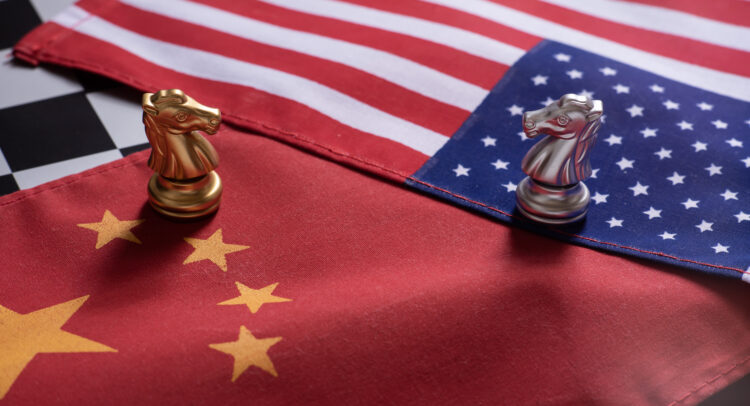U.S. Treasury Secretary Janet Yellen is meeting for four days in China to discuss the economy and business climates of the world’s largest economies. This is Yellen’s second trip to China in nine months where she has been meeting with senior Chinese officials. April’s new set of meetings is expected to focus on Chinese excess production which has spilled over into U.S. markets as “cheap goods.”
China’s high manufacturing ability is creating problems for U.S. manufacturers.
Main Goal of Yellen’s China Trip
Treasury Secretary Yellen’s meeting’s main goal is to emphasize healthy trade relations. She will meet with Guangdong Province Governor Wang Weizhong and Vice Premier He Lifeng in a follow-up to her last meeting there to spur better U.S.-China economic relations. The nature of these talks may be more forceful than last year’s meetings as the White House has a growing concern over China’s economic activity as it relates to the U.S.
President Biden and other administration officials’ increased concern is specifically related to China’s excessive production of electric vehicles, semiconductors, solar panels, and other goods that are pouring into global markets. The concerns are compounded when examined in the context that there is slumping demand in the U.S. economy.
Treasury Secretary Yellen is expected to argue that overproduction is not healthy for China and is hurting producers in other countries.
Economic Implications of U.S.-China Trade Talks
The U.S. Treasury probably does not expect compliance with its demands at the meetings. It is not very likely that there will be any major shift in Chinese policy as a result of the visit by the high-ranking U.S. official.
But what if she is successful?
Yellen’s success would mean fewer inexpensive goods shipped to the U.S. from China. Other manufacturers, domestic or from other parts of the world, would be more costly for U.S. consumers. This would add to U.S. inflation, which is already well above the Fed’s target range.
If there is a reduced flow of goods, manufacturing might expand in the U.S. The labor market is already tight, and employers are now having a difficult time filling specific positions with qualified labor. This, again, could be inflationary as it drives up wage costs that get passed along to consumers.
Another scenario is China doesn’t act to reduce the flood of its manufactured goods into the U.S. The administration may try to fix what China is unwilling to by taking steps towards raising U.S. tariffs on Chinese EVs, clean energy goods, and other products in order to protect U.S. industry. The add-on cost of the tariffs would translate to higher prices in the U.S., once again, being additive to the ongoing inflation problem in the U.S. economy.
Key Takeaway
In essence, Treasury Secretary Yellen’s ongoing discussions in China reflect the growing concern over Chinese excess production and its impact on global markets, particularly the United States. While aiming to foster healthy trade relations, her efforts carry the potential for unintended consequences. If successful, the Treasury’s actions could heighten pressure on U.S. Fed Chair Powell to uphold higher interest rates, potentially leading to market fluctuations.
Yellen’s emphasis on addressing China’s manufacturing surplus not only seeks to benefit U.S. companies but also addresses broader implications on inflation and labor markets.
The outcomes of these talks may shape future U.S.-China economic dynamics and trade policies, with repercussions on both domestic and international stakeholders.
















